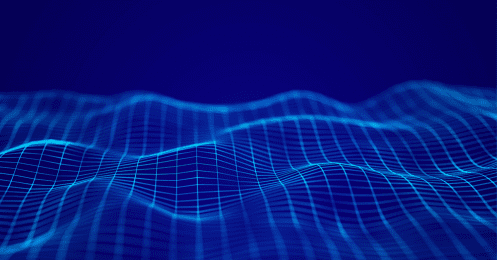
The transportation logistics industry has seen its fair share of ups and downs in recent years – from the COVID-19 pandemic to recent supply chain issues. Now, in response to this tumultuous environment, the logistics industry has become increasingly data-driven. To help optimize supply chains, predict and prepare for market shifts, better understand performance, and ensure accurate pricing, shippers are relying on data more than ever before.
Unfortunately, despite data’s importance, shippers often run into roadblocks, such as getting buy-in internally, trying to lock in a data provider, consolidating and validating sources, evolving past outdated practices, and more. Even the most tech-savvy companies are overlooking important supply chain data and metrics, and some companies aren’t even involved at all.
In the first edition of The Shipping iQ – DAT iQ’s new series highlighting common industry problems and the solutions available – we tackle the issue of sourcing, managing, and analyzing data and how DAT’s solutions can help improve your data collection and utilization.
Common issues with sourcing, managing, and analyzing data
First and foremost, there is a lack of clarity around what data to collect and how to collect it. Benchmarking data is becoming the most critical type of insights for shippers to have to ensure they’re staying competitive, however, sourcing this data can be a challenge as there are two very different types of benchmarking data and various ways to collect it.
Benchmarking data is a continuous process that measures an organization’s products, services, and practices against other leaders in the industry in order to improve business performance. For shippers, benchmarking data allows them to get a better idea of current and historical rates, network performance, areas they can save and areas where they’re spending too much, and more.
All of this data can be collected in different ways – companies can utilize a consortium of voluntary participants, exploit cloud-based technologies for farm data from operational transportation management system (TMS) applications, or use paid invoice data, just to name a few. Faced with all of these options, many shippers struggle to decide which data collection tools and sources they can trust. In fact, according to a recent study, 20% of respondents did not use benchmarking, indexes or other data sources to manage their supply chains on a day-to-day basis and an additional 5% did not know what data sources, if any, their company utilized.
The quarter of the shipping industry that is not utilizing these necessary information-gathering tools are unfortunately operating in the dark. Data is a critical component to running shipping operations and, without it, companies can’t gauge what is and isn’t working or predict upcoming market changes. This, ultimately, leaves shippers vulnerable and unable to move beyond just the baseline.
How DAT helps source, manage, and analyze data
DAT offers rate and capacity analytics solutions that can help shippers better uncover and utilize data.
DAT iQ offers rate analytics tools intended to equip shippers with the most accurate insights into past, present and future freight rates, allowing shippers to quote customers quickly and stay profitable with the most up-to-date market prices available. With data from more than $150 billion in transactions annually and market insights across every lane, DAT delivers more data than any other platform.
Even further, shippers can get insights on their network, find new lanes to prioritize areas that deliver the most impact and repair the areas that are most at risk, and align rates with current market trends. Accurate rate insights add transparency to carrier negotiations, and help shippers navigate volatile markets by utilizing the latest rates and forecasting tools.
Additionally, shippers can use DAT iQ capacity analytics solutions such as DAT Carrier Select™ software, which streamlines network analysis to uncover savings opportunities and identifies alternative carriers to match your capacity, service level, and budget requirements. DAT Carrier Select™ software enables shippers to pinpoint cost savings opportunities, uncover new or alternative carriers based on lane, size, contact info, Smartway Certification, and more. Additionally, capacity analytics tools allow users to fine-tune segmentation analysis and streamline procurement – from mini-bids to annual RFPs – by eliminating manual analysis and research.
Together, these solutions can help streamline disparate or decentralized sources and provide shippers with reliable market data.
The power of data and the power of DAT
As data becomes increasingly important in the logistics industry, it’s critical that shippers take the necessary steps to source, manage, and analyze their data properly.
While it can be tricky – particularly as this is an industry that is new to this level of data collection – DAT can help lead the way and ensure shippers are getting the information and insights they need to be successful in their role and drive strong results for their company.


